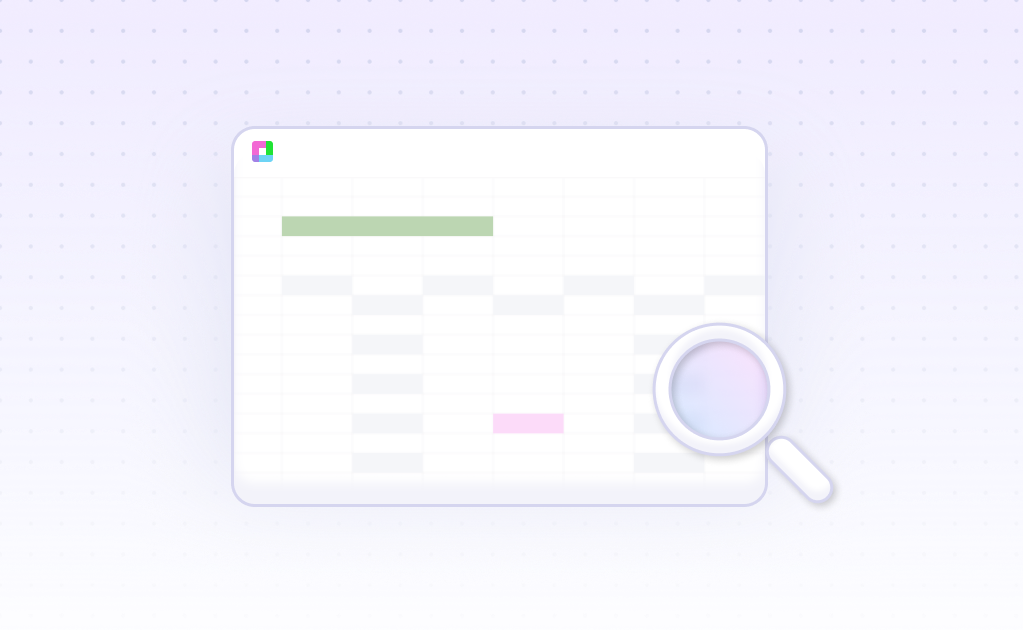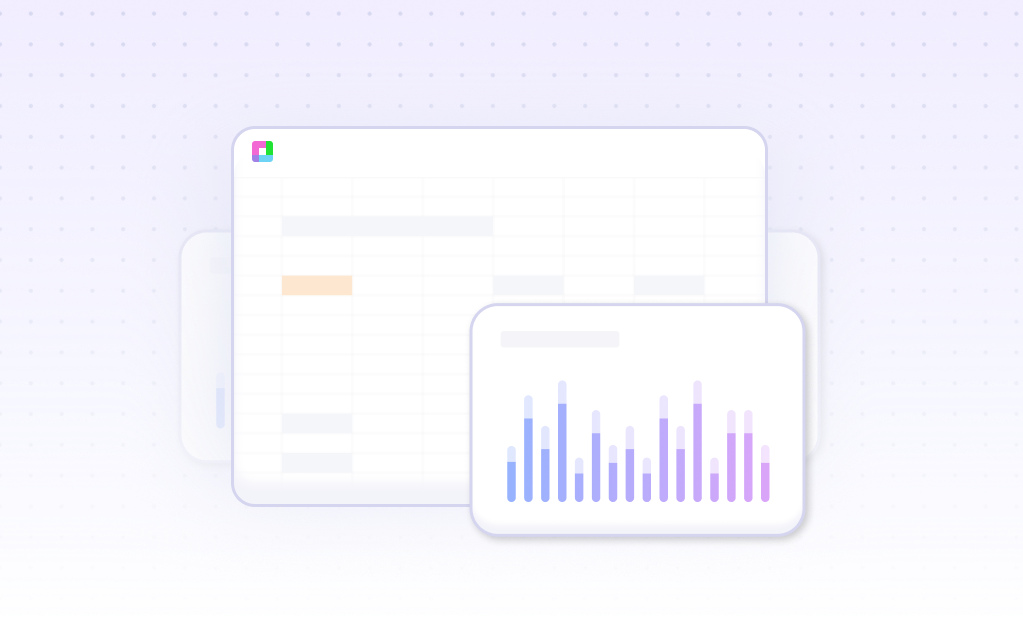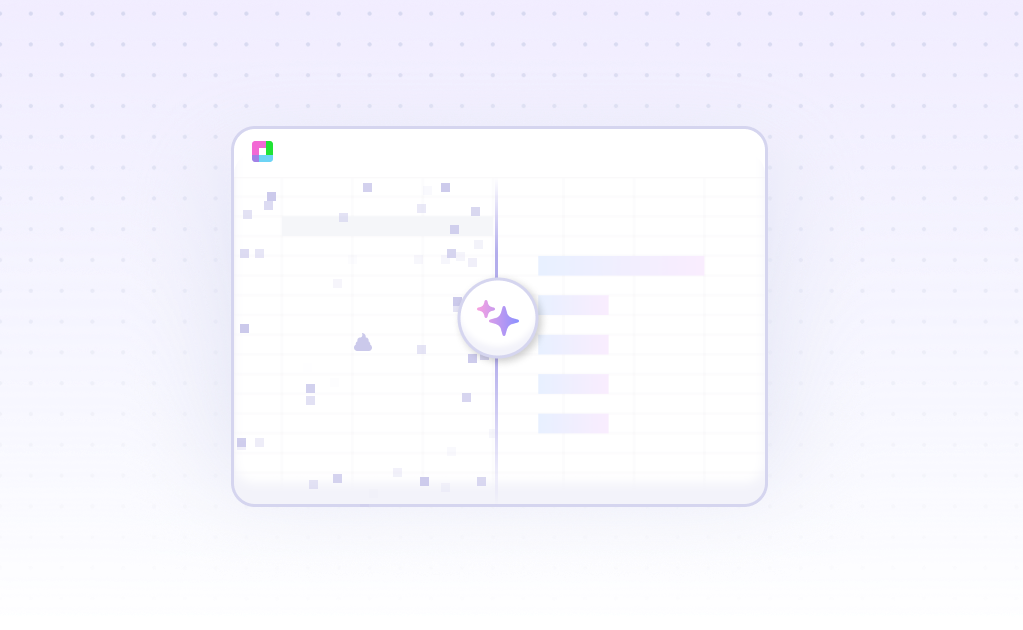
Why Legal Case Analytics Matters
Every legal professional knows the frustration: you have case data scattered across multiple systems, but turning that information into actionable insights feels like solving a puzzle with missing pieces. Whether you're analyzing settlement patterns, predicting case outcomes, or identifying the most effective legal strategies, the right analytics can be the difference between winning and losing.
Traditional spreadsheet tools leave legal teams struggling with complex formulas and time-consuming manual analysis. Sourcetable changes this by bringing AI-powered analytics directly to your familiar spreadsheet environment, making sophisticated legal case analysis accessible to every member of your team.
Transform Your Legal Analytics
Sourcetable empowers legal professionals with advanced analytics capabilities that work seamlessly with your existing workflow.
Case Outcome Prediction
Analyze historical case data to predict likely outcomes and develop more effective legal strategies based on data-driven insights.
Settlement Pattern Analysis
Identify trends in settlement amounts, timing, and negotiation strategies to optimize your approach and maximize client outcomes.
Judge Performance Metrics
Track ruling patterns, case duration, and decision trends across different judges to inform case strategy and court selection.
Cost-Benefit Analysis
Calculate the true cost of litigation versus settlement options, including time investment, resource allocation, and probability-weighted outcomes.
Risk Assessment
Quantify legal risks using historical data and statistical modeling to make informed decisions about case strategy and resource allocation.
Performance Benchmarking
Compare your firm's performance against industry standards and identify areas for improvement in case management and outcomes.
Legal Analytics in Action
See how legal professionals use Sourcetable to analyze case data and drive better outcomes.
Personal Injury Case Valuation
A personal injury firm analyzed 500+ cases to identify key factors affecting settlement amounts. They discovered that cases with specific medical documentation patterns settled 40% higher on average. The analysis included injury severity scores, treatment duration, and demographic factors, enabling more accurate case valuations and improved client counseling.
Corporate Litigation Timeline Analysis
A corporate legal department tracked 200+ commercial disputes to identify bottlenecks in their litigation process. They found that cases with early expert witness involvement resolved 60% faster. The analysis revealed optimal timing for settlement discussions and helped reduce average case duration from 18 to 11 months.
Employment Law Compliance Tracking
An employment law practice analyzed patterns in workplace discrimination cases across different industries and company sizes. They identified that companies with specific HR training programs had 75% fewer successful claims against them, leading to valuable client advisory opportunities and prevention strategies.
Criminal Defense Strategy Optimization
A criminal defense attorney analyzed plea bargain outcomes across different prosecutors and judges. The data revealed that certain prosecutors were 30% more likely to accept specific plea terms, and particular judges showed consistent patterns in sentencing. This intelligence informed negotiation strategies and client advice.
Intellectual Property Portfolio Analysis
An IP law firm examined patent litigation outcomes to identify the most defensible patent characteristics. They analyzed claim structures, prior art citations, and prosecution history to develop a scoring system that predicted litigation success with 85% accuracy, improving patent portfolio strategy for clients.
Family Law Financial Modeling
A family law practice created models to predict spousal support duration and amounts based on marriage length, income disparities, and custody arrangements. The analysis helped attorneys provide more accurate expectations to clients and negotiate more effectively during mediations.
From Case Data to Legal Insights
Transform your legal case information into actionable analytics with Sourcetable's intuitive process.
Import Your Case Data
Connect your case management system, import CSV files, or manually enter case information. Sourcetable handles various data formats including case details, outcomes, timelines, financial information, and participant data.
AI-Powered Analysis Setup
Use natural language to describe your analysis goals. Ask questions like 'Which factors predict successful settlements?' or 'What's the average case duration by practice area?' Sourcetable's AI creates the appropriate analytical framework.
Generate Insights
Sourcetable automatically performs statistical analysis, identifies patterns, and creates visualizations. Get correlation analysis, trend identification, predictive models, and comparative benchmarks without complex formulas.
Create Strategic Reports
Transform your analysis into professional reports for partners, clients, or court presentations. Export charts, tables, and summaries that clearly communicate your findings and recommendations.
Comprehensive Legal Analytics
Sourcetable supports a wide range of legal analytics approaches, each designed to answer specific strategic questions and drive better decision-making.
Outcome Prediction Models
Build predictive models using historical case data to forecast likely outcomes. Analyze factors like case type, jurisdiction, opposing counsel, judge assignment, and case complexity to create probability-weighted scenarios. This analysis helps with resource allocation, client counseling, and strategic planning.
Financial Impact Analysis
Calculate the true cost of litigation including attorney time, court fees, expert witnesses, and opportunity costs. Compare litigation expenses against settlement offers and probability-adjusted outcomes to make economically sound decisions. Track billable hour efficiency and case profitability across different practice areas.
Performance Benchmarking
Compare your firm's performance against industry standards and historical benchmarks. Analyze win rates, settlement amounts, case duration, and client satisfaction across different attorneys, practice areas, and case types. Identify top performers and best practices to replicate success.
Risk Assessment Modeling
Quantify legal risks using statistical analysis and historical data. Assess the likelihood of adverse outcomes, potential damages, and strategic risks. Create risk matrices that help prioritize cases and allocate resources effectively while managing client expectations.
Legal Analytics Questions
How do I protect client confidentiality when analyzing case data?
Sourcetable provides enterprise-grade security with encrypted data storage and transmission. You can anonymize sensitive data by removing client names and personal identifiers while preserving analytical value. Work with aggregated data patterns rather than individual case details, and ensure compliance with attorney-client privilege and ethical obligations.
What types of legal data can Sourcetable analyze?
Sourcetable can analyze any structured legal data including case outcomes, settlement amounts, litigation timelines, judge decisions, attorney performance, costs and fees, opposing counsel patterns, jurisdiction differences, and practice area metrics. Import data from case management systems, court records, billing systems, or manual entry.
How accurate are the predictive analytics for legal cases?
Prediction accuracy depends on data quality and quantity. With sufficient historical data, Sourcetable's models typically achieve 70-90% accuracy for outcome predictions. The system provides confidence intervals and helps you understand the limitations of predictions. Use predictive analytics as one factor in decision-making, not as definitive answers.
Can I compare my firm's performance to industry benchmarks?
Yes, Sourcetable enables benchmarking analysis using your historical data and industry-standard metrics. Compare win rates, settlement ratios, case duration, and cost efficiency. While we don't provide external benchmark data, you can create internal benchmarks and track performance trends over time.
How long does it take to set up legal case analytics?
Basic analysis can be set up in minutes by importing your data and asking natural language questions. More sophisticated predictive models may take a few hours to configure properly. The AI assistant guides you through the process, suggesting relevant analyses based on your data structure and stated goals.
What if I don't have much statistical background?
Sourcetable is designed for legal professionals, not statisticians. The AI assistant explains analytical concepts in plain language and suggests appropriate methods based on your questions. You can focus on legal strategy while Sourcetable handles the technical analysis, providing clear explanations of results and their implications.
Can I create reports for court presentations or client meetings?
Absolutely. Sourcetable generates professional charts, tables, and summaries suitable for court filings, client presentations, or partner meetings. Export visualizations as images, create formatted reports, or present directly from the platform. All outputs maintain professional standards appropriate for legal settings.
How do I handle cases with missing or incomplete data?
Sourcetable provides tools for data cleaning and gap analysis. The system identifies missing data patterns and suggests approaches for handling incomplete records. You can perform analysis on complete cases only, use statistical imputation methods, or create separate analyses for different data completeness levels.
Frequently Asked Questions
If your question is not covered here, you can contact our team.
Contact Us




